
By Miko Ruhlen. Feb. 23, 2017. “Right now we are already out of plastic bags, but we aren’t charging a fee for paper bags yet,” said Rosauers Store Manager Steve Morgan in mid-February.
A fee for paper bags starting March 1? While many shoppers and retailers heard that plastic bags will be banned, some were not aware of restrictions on paper bags.
“It is amazing how many people didn’t know about it (the bag ban),” said Morgan. “One of the reasons that we ran out early is so that we can prepare customers.”
On January 9, 2017, Hood River City Council voted to adopt Ordinance 2030 to ban plastic checkout bags and impose restrictions on other single-use bags.
But why a bag fee?
A source of confusion has been the regulations for paper bags including the 5 cent minimum fee for larger paper bags (grocery-sized).
It is about human nature and ‘loss aversion.’ Studies have found that people are more likely to change behavior: changes to avoid a penalty fee, ticket, or tax than to gain incentives. Even though many stores offer a discount if people bring their own bag, this method has not achieved significant reductions in single-use bags. Data from bag bans in other places have found significant declines in single-use checkout bag use after fees were imposed.
This ordinance is not just about decreasing plastics, but it aims to decrease all types of single-use bags, including paper which also impacts the environment. “If all you do is shift people to paper bags, you are causing an increase in the use of paper shopping bags and increase in pulping which causes acidification to the marine environment,” said David Skakel, Tri-County Hazardous Waste and Recycling Program Coordinator.
Does the ordinance affect all paper checkout bags?
If shoppers still choose to take single-use paper bags at the checkout, they will soon be more environmentally friendly due to requirements that all paper checkout bags be 40% post-consumer waste content and recyclable (meeting ASTM standards).

EnviroGorge’s January article, ‘Bag Ban‘ stated that Ordinance 2030 would not affect smaller paper bags, but that is incorrect (our apologies). This ordinance requires that by July 1, all retailers shift their bag buying so that all smaller paper bags (less than 12x7x13 in. or 1,100 to 1,600 cubic inch capacity) given at checkout also meet the post-consumer waste requirements. Not affected are any bags given out in other places besides checkout: produce, meat, pharmacy, bulk aisle. The ordinance also does not affect food establishments (i.e. restaurants and food carts).
How to choose a reusable bag?
Ideally, Hood River shoppers will get used to bringing reusable bags, but if they forget them, this ordinance also requires retailers to sell some reusable bags at a ‘reasonable cost.’
What kind of reusable bag to pick? Bags can be made of a variety of materials: cotton, canvas, nylon, polyethylene plastic, polypropylene plastic, compostable plastic, or recycled content. There has not been a comprehensive study on the carbon footprint of all types of reusable bags over their life cycle. Although, a study in California did find that reusable polyethylene bags (made with 40% post consumer recycled polyethylene plastic) have a lower environmental impact than a reusable polypropylene bag.
Then there is durability. All reusable bags have a better environmental impact if used over 8 times, but ideally they should be able to withstand use over 26 times (once a week for 6 months). Shoppers will have to consider whether a reusable bag can be mended if it breaks, and how many wash cycles it can withstand.
What to do with a bag when it can no longer be used? Some reusable bag manufactures claim that their bags can be recycled. Currently there is no recycling drop off or facility that can take reusable bags in the Columbia River Gorge according to the Oregon Metro Regional Government recycling hot line.

Reusable bags that carried dairy and meat products can harbor bacteria (including e coli and coliform bacteria). Using washable bags for these types of products, perhaps even a color coding system, can help to prevent cross contamination—use red bags for meat and green bags for produce.
The most important thing may be picking the bag that you will actually use and remember. “My favorite bag is a re-purposed locally made bag,” said Skakel. “The bag I have is made out of my old windsurfing sail.”
It’s all in in the details
A technical read of Ordinance 2030 implies that consumers will not be able to bring their own bag that does not meet the specifications of a reusable bag made of cloth, washable material, or durable plastic that is at least 2.25 mils thick.
“As a practical matter we are not going to prosecute someone who brings in their own paper bag,” stated Steve Wheeler City Manager of Hood River in an interview. In some stores, incentives to bring your own bag of any type will continue. At Rosauers, Morgan says, “Customers will still get a five cent discount for bringing their own bag of any kind, cloth, plastic or paper.”
There are still details of the bag ordinance that may need to be clarified to business owners over the next several months, especially for small second hand stores, small stands at the farmer’s market or other scenarios that may fall between the cracks.
Wheeler made it clear that the goal of the ordinance is not to create a lot of work for enforcement and impose fines. Goals set forth in the ordinance are to reduce environmental and energy related costs and impacts related to single-use bags, and to encourage the use of reusable bags.
Many people have already made the switch to reusable bags, this saves businesses money and helps the environment. Avoid the hassles and ease the transition. Start bringing reusable bags to the store now.

RELATED POSTS:
Paid Advertisement:

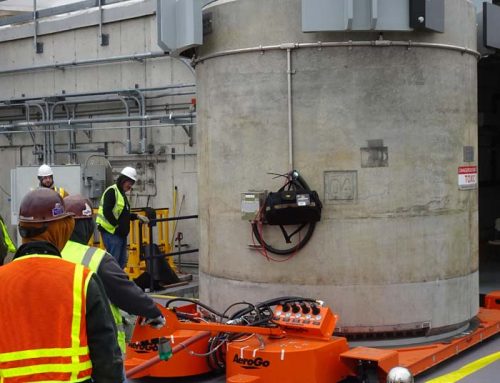

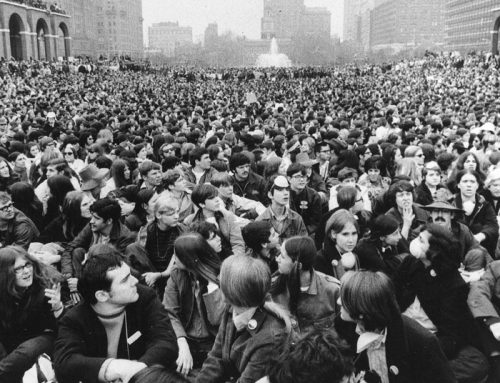
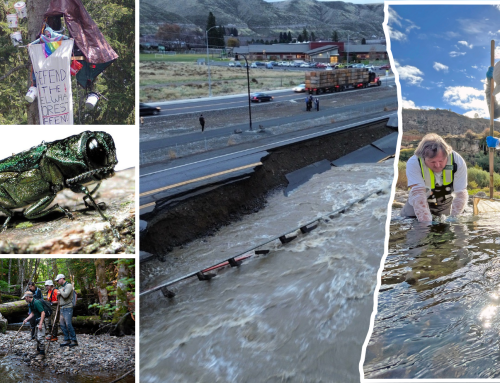
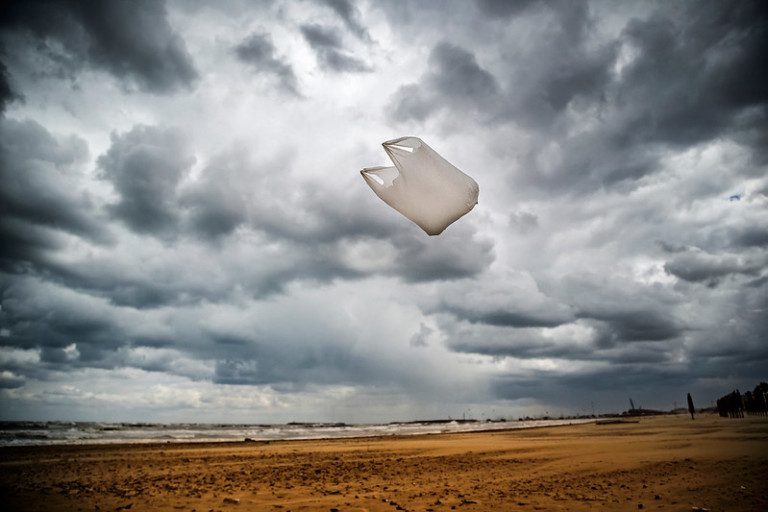
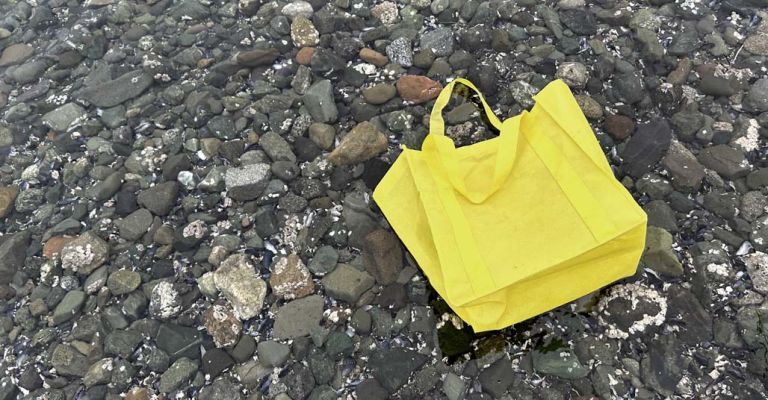

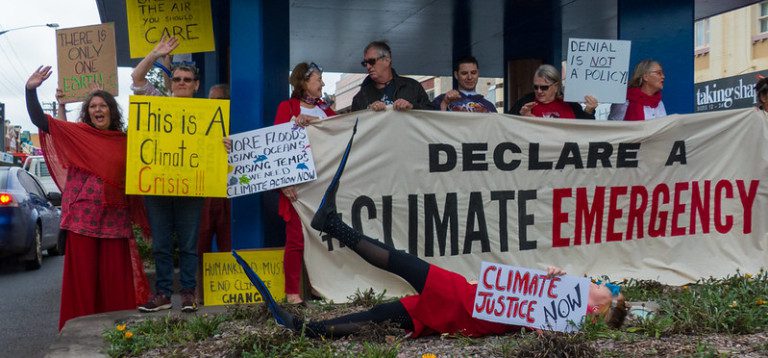


Awesome! And by-the-way, reusable shopping bags can not only last for weeks, but for years or even decades. Our three cotton bags are in heavy use since before ~ 1996 and have lived and gone shopping weekly in Colorado, Texas, Arizona, and now since 3 1/2 years here in Hood River.
Thank you! We agree that some bags are very durable. We also have some canvas bags that we have used for 25 years!
I was in favor of changing to reusable bags, but it’s turning into a monster. My husband doesn’t hesitate to pay the fee for a reusable plastic in the store every time he goes. I see a lot of people doing that. Then I hear of people using them as trash bags! So now we have a highly durable plastic trash bag. I have piles and piles of these and can’t find anywhere to recycle them. The stores don’t seem to have a bin set up and our trash service doesn’t offer recycling. I’m up for making my own bags out of scrap fabric when I get the time but even then other people (including my husband, who’s heard my side of it and still does what he does) will keep buying them and using them as trash bags or maybe just throwing them out. How is this better?
You bring up some great points. This is a very complex issue without a “one size fits all” answer, as your comment perfectly illustrates.